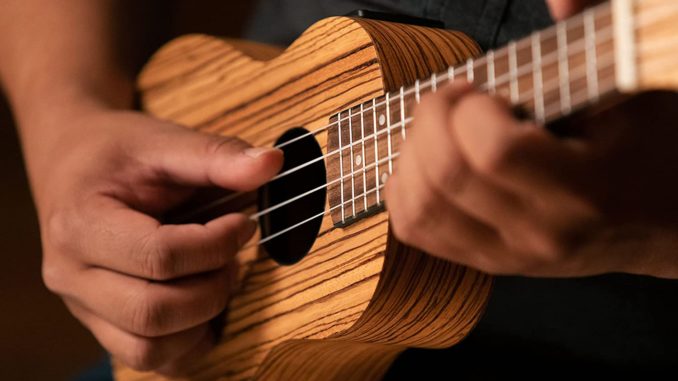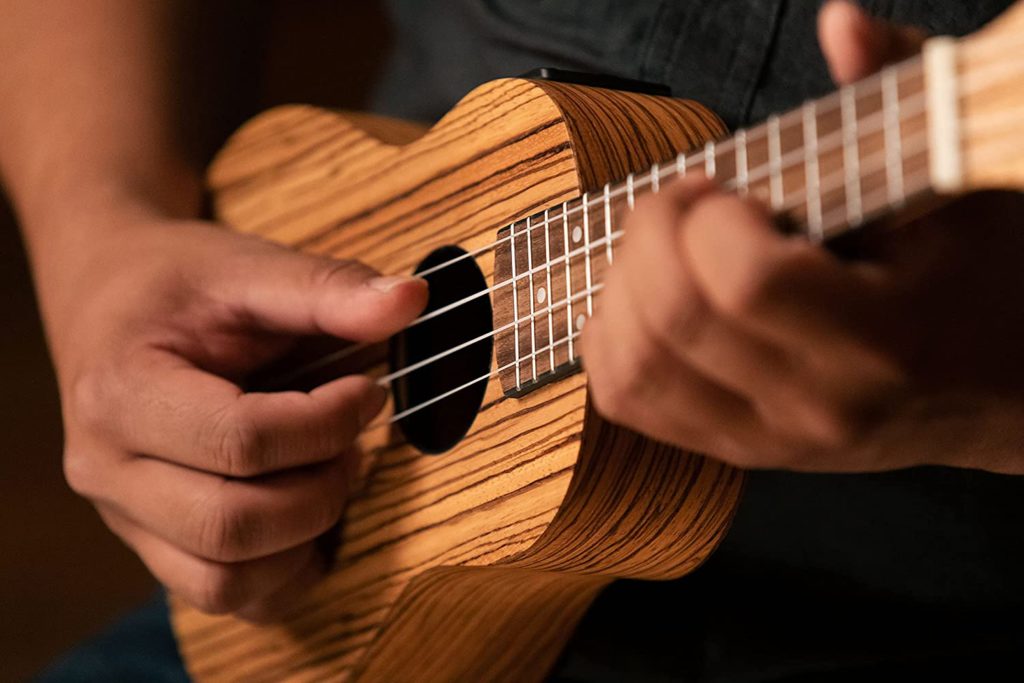
The ukulele, or Uke, with its cheerful strum and infectious melodies, has captured hearts worldwide. Its portability, affordability, and relative ease of learning make it a popular choice for aspiring musicians of all ages. But for those just starting their ukulele journey, a multitude of questions can arise. Fear not, curious minds! This guide delves into 50 of the most common questions people ask about the ukuleles, providing concise answers to get you strumming with confidence.

50 Questions People Ask About the Ukulele
Ukulele Basics (Questions 1-10):
- What is a Ukulele? A ukulele is a small, four-stringed instrument originating from Hawaii. It typically comes in four main sizes: soprano, concert, tenor, and baritone.
- What are the different types of ukuleles? The four main ukulele sizes (soprano, concert, tenor, baritone) offer variations in sound and playing experience. Sopranos are the smallest and have the highest pitch, while baritones are the largest with the lowest pitch.
- What’s the difference between a ukulele and a guitar? While both are string instruments, ukuleles are smaller, have four strings (guitars have six), and typically produce a brighter, more cheerful sound.
- Is the ukulele easy to learn? Ukuleles are generally considered easier to learn than guitars due to their smaller size and simpler chord progressions.
- What age is the ukulele good for? Ukuleles are suitable for all ages! Their size and ease of learning make them perfect for children, while adults can appreciate their portability and fun factor.
- How much does a ukulele cost? Ukuleles come in a wide price range. Beginner ukuleles can be found for under $50, while professional instruments can cost thousands.
- What’s the best brand of ukulele for beginners? Many reputable brands offer good beginner ukuleles. Focus on features like good tuning stability and comfortable playability.
- Where can I buy a ukulele? Ukuleles can be purchased from music stores online or in person. Consider getting advice from a salesperson if you’re unsure which one to choose.
- Do I need a pick to play the ukulele? Ukuleles can be played with fingers (fingerpicking) or a pick. Both methods have their merits; fingerpicking offers more control while picks can create a strumming sound.
- Are there different ukulele tunings? The most common ukulele tuning is GCEA (from highest to lowest string). However, there are other tunings (DGBE, low G) used for specific styles or songs.
Learning & Playing (Questions 11-20):
- How do I hold a ukulele? There’s no single “correct” way to hold a ukulele, but comfort and proper fretting technique are key. Experiment and find what feels natural for you.
- How do I tune a ukulele? Ukuleles can be tuned electronically or by ear using a tuning fork, tuner app, or reference from another instrument.
- What are ukulele chords? Chords are combinations of notes played together. Learning basic ukulele chords opens doors to playing countless songs.
- What are some easy ukulele chords for beginners? Popular beginner chords include C, G, Am, F, and Em. These chords are the foundation for many ukulele songs.
- How do I learn to strum the ukulele? Strumming techniques vary depending on the desired sound. Basic strumming patterns like down-strums, up-strums, and alternating patterns are great starting points.
- What are some resources for learning ukulele? There are countless online tutorials, instructional videos, and beginner ukulele books available. Consider taking ukulele lessons for personalized guidance.
- Can I learn ukulele by myself? Yes! With dedication and the right resources, you can learn ukulele on your own. However, lessons can accelerate your progress and address any technique issues.
- How long does it take to learn ukulele? The time it takes to learn ukulele varies based on your dedication and practice time. You can learn basic chords and strumming patterns within a few weeks, while mastering more advanced techniques takes longer.
- Are there different styles of ukulele music? Ukulele music encompasses various styles like traditional Hawaiian, reggae, pop, folk, and even jazz!
- Many popular songs utilize simple chords, making them perfect for beginners. Here are a few examples to get you started:
- Over the Rainbow” (Israel Kamakawiwoʻole): This iconic song features only four chords (C, G, Am, F) and a simple strumming pattern, making it ideal for beginners.
- “Riptide” (Vance Joy): Another great choice with just four chords (C, G, Am, F) and a catchy melody perfect for practicing strumming and fingerpicking techniques.
- “Hey Soul Sister” (Train): This upbeat song utilizes five chords (G, D, Em, C, Am) and a fun strumming pattern that’s easy to learn.
- “Let It Be” (The Beatles): This classic song features only four chords (C, G, Am, F) and a mellow strumming pattern, making it a relaxing and rewarding choice for beginners.
- “Hallelujah” (Leonard Cohen): While the full version might be challenging, a simplified version using just four chords (C, G, Am, F) can be a great starting point.
Ukulele Care & Maintenance (Questions 21-30):
- How do I take care of my ukulele? Store your ukulele in a cool, dry place away from direct sunlight or extreme temperatures. Regularly wipe down the body with a soft cloth and restring it when strings become worn or lose their tone.
- How often should I change the strings on my ukulele? This depends on how often you play. Strings can lose their brightness and tuning stability over time. Change them when they sound dull or become difficult to keep in tune.
- Can I restring my ukulele myself? Yes! Ukulele stringing is a relatively simple process. There are many online tutorials and resources available to guide you through the process.
- What kind of strings should I use for my ukulele? Ukulele strings come in various materials like nylon, fluorocarbon, and gut. Nylon strings are common for beginners, while fluorocarbon may offer brighter sound and longer life.
- Do ukuleles need to be humidified? Ukuleles made from wood may benefit from occasional humidification, especially in dry climates. This helps prevent the wood from cracking.
- What should I do if my ukulele gets a dent or scratch? Minor cosmetic damage won’t affect the sound. For more significant damage, consult a qualified instrument repair technician.
- Can I travel with my ukulele? Ukuleles are excellent travel companions due to their portability! Invest in a good quality case for protection during transport.
- Can I take my ukulele on a plane? Check with the airline beforehand, but many airlines allow ukuleles in carry-on luggage due to their size.
- What are some ukulele accessories I might need? Consider a capo (raises the pitch of all strings), a strap for hands-free playing, a tuner, and a pick (optional).
- Are there online communities for ukulele players? Absolutely! Numerous online forums, groups, and social media communities connect ukulele enthusiasts worldwide. They offer encouragement, tips, and a platform to share your musical journey.
The Ukulele Community & Beyond (Questions 31-40):
- Are there ukulele festivals or events? Yes! Ukulele festivals are a fantastic way to immerse yourself in the ukulele community, learn from experienced players, and enjoy live ukulele music.
- Can I perform with my ukulele? Of course! Ukulele players of all skill levels perform solo, in groups, or as part of jam sessions.
- Are there famous ukulele players? Many artists have popularized the ukulele, including Jake Shimabukuro, Vance Joy, and The Ukulele Underground.
- Where can I find ukulele sheet music? Ukulele sheet music is readily available online and in music stores. Many websites offer free ukulele tabs (simplified notation).
- What are some tips for practicing ukulele? Set realistic goals, practice regularly, record yourself to identify areas for improvement, and most importantly, have fun!
- Is it ever too late to learn ukulele? Absolutely not! Ukulele playing is enjoyable for people of all ages and musical backgrounds.
- Can I learn to sing and play ukulele at the same time? Yes, but it takes practice. Start by focusing on mastering chords and strumming patterns before adding vocals.
- What are some benefits of playing ukulele? Ukulele playing can improve hand-eye coordination, memory, stress reduction, and overall sense of well-being.
- Should I take ukulele lessons? While not mandatory, ukulele lessons can significantly enhance your learning experience and provide personalized feedback.
- What are some ukulele resources for children? There are numerous children’s ukulele books, online tutorials, and even ukulele sizes specifically designed for smaller hands.
The Future of the Ukulele (Questions 41-50):
- Is the ukulele becoming more popular?
Ukulele popularity continues to rise worldwide, attracting new players of all ages and backgrounds. This surge in interest can be attributed to factors like the instrument’s affordability, portability, and the abundance of online learning resources.
- Will ukuleles evolve in the future?
Ukulele design and technology might evolve, leading to advancements in materials, construction methods, and even electronics. However, the core principles of portability, playability, and the ukulele’s cheerful sound are likely to remain at the heart of the instrument.
- Can the ukulele be used for professional music?
While not as prevalent as guitars or pianos, the ukulele has found its place in professional music. Skilled ukulele players can incorporate the instrument into various musical genres, from traditional Hawaiian to pop and jazz. Artists like Jake Shimabukuro and Vance Joy showcase the ukulele’s versatility and potential for professional success.
- What are some career options for a skilled ukulele player?
While becoming a full-time ukulele performer might be challenging, skilled players have various avenues to explore:
- Ukulele teacher: Share your knowledge and passion for the instrument by teaching private lessons or group classes.
- Session musician: Utilize your ukulele skills in recording sessions or live performances with other artists.
- Ukulele content creator: Create engaging ukulele tutorials, song covers, or performances for online platforms like YouTube or social media.
- Ukulele repair technician: Learn the intricacies of ukulele repair and maintenance to service instruments for other players.
- Ukulele builder: For the truly passionate and skilled, crafting custom ukuleles can be a rewarding career path.
- What are some famous ukulele songs?
There are countless ukulele classics, but some popular choices include:
- “Over the Rainbow” (Israel Kamakawiwoʻole)
- “Hallelujah” (Leonard Cohen)
- “What a Wonderful World” (Louis Armstrong)
- “Riptide” (Vance Joy)
- “Hey Soul Sister” (Train)
- “Don’t Worry Be Happy” (Bobby McFerrin)
- Can I learn ukulele music by ear? Yes! With practice, you can develop your ear training to learn songs by ear. Start with simple melodies and gradually progress to more complex pieces. Online resources and ear training apps can be helpful tools in this process.
- Are there ukulele-specific music theory concepts I should learn? Understanding basic music theory concepts like chords, scales, and rhythm can significantly enhance your ukulele playing and songwriting. Knowing how chords are built and how they relate to each other opens doors to improvisation and creating your own music.
- Can I write my own ukulele songs? Absolutely! Ukulele’s simplicity makes it a fantastic tool for songwriting. Experiment with chords, strumming patterns, and melodies to create your own musical expressions. Online tutorials and resources can guide you through the songwriting process for ukulele.
- Where can I find inspiration for my ukulele playing? Listen to other ukulele players, explore different musical genres, attend ukulele workshops or festivals, and don’t be afraid to experiment and find your own unique style. There are countless resources online and in music communities to spark your creativity.
- Most importantly, will playing ukulele be fun?
Without a doubt! The ukulele’s cheerful sound, portability, and beginner-friendly nature make it a joy to play. With dedication and a touch of fun, you’ll be strumming your way to musical satisfaction in no time. The ukulele welcomes players of all skill levels to join its vibrant community and discover the joy of making music.
Banjo Links
How to Restring your 5 String Banjo
How to Play Foggy Mountain Breakdown On Banjo
